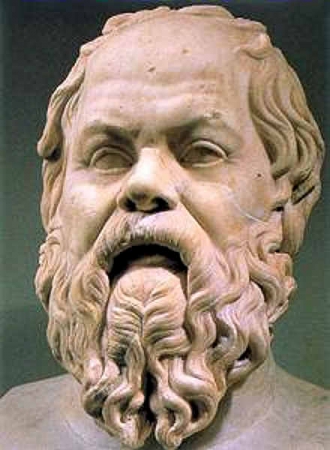

To this end, he makes it clear that he is not a Sophist (intellectuals in ancient Greece who taught philosophy to the sons of rich men in exchange for large amounts of money). Nevertheless, he says he will defend himself against these slanderous remarks, beginning by refuting the idea that he has “busie himself studying things in the sky and below the earth” and spreading these problematic ideas throughout Athens. “They spoke to you at an age when you would most readily believe them, some of you being children and adolescents, and they won their case by default, as there was no defense,” Socrates says. He fears this slander more than he fears what Meletus and Anytus have said about him, since his unknown accusers have been working for a long time to “persuade” the people of Athens to distrust him.

Socrates says many people have spoken ill of him over the years, and so he decides to address their accusations first. As such, he says, he has decided to speak as he normally does, using simple, straightforward language. In fact, he asks the jury to excuse his manner of speaking, since he is seventy years old and has never appeared in court. Indeed, Socrates insists that although his detractors have warned the jury about his cunning rhetorical trickery, he is not an accomplished orator. However, he notes, these accusers-who include Meletus and Anytus-have not spoken the truth. “I do not know, men of Athens, how my accusers affected you as for me, I was almost carried away in spite of myself, so persuasively did they speak,” he begins. Plato’s Apology-a transliteration of the Ancient Greek word apologia, meaning “defense”-is supposedly a historical record of the speech Socrates gave to the Athenian jury after being accused of “corrupting the young and of not believing in the gods in whom the city believes.” Socrates begins his apologia by commenting on how his accusers have spoken about him.


 0 kommentar(er)
0 kommentar(er)
